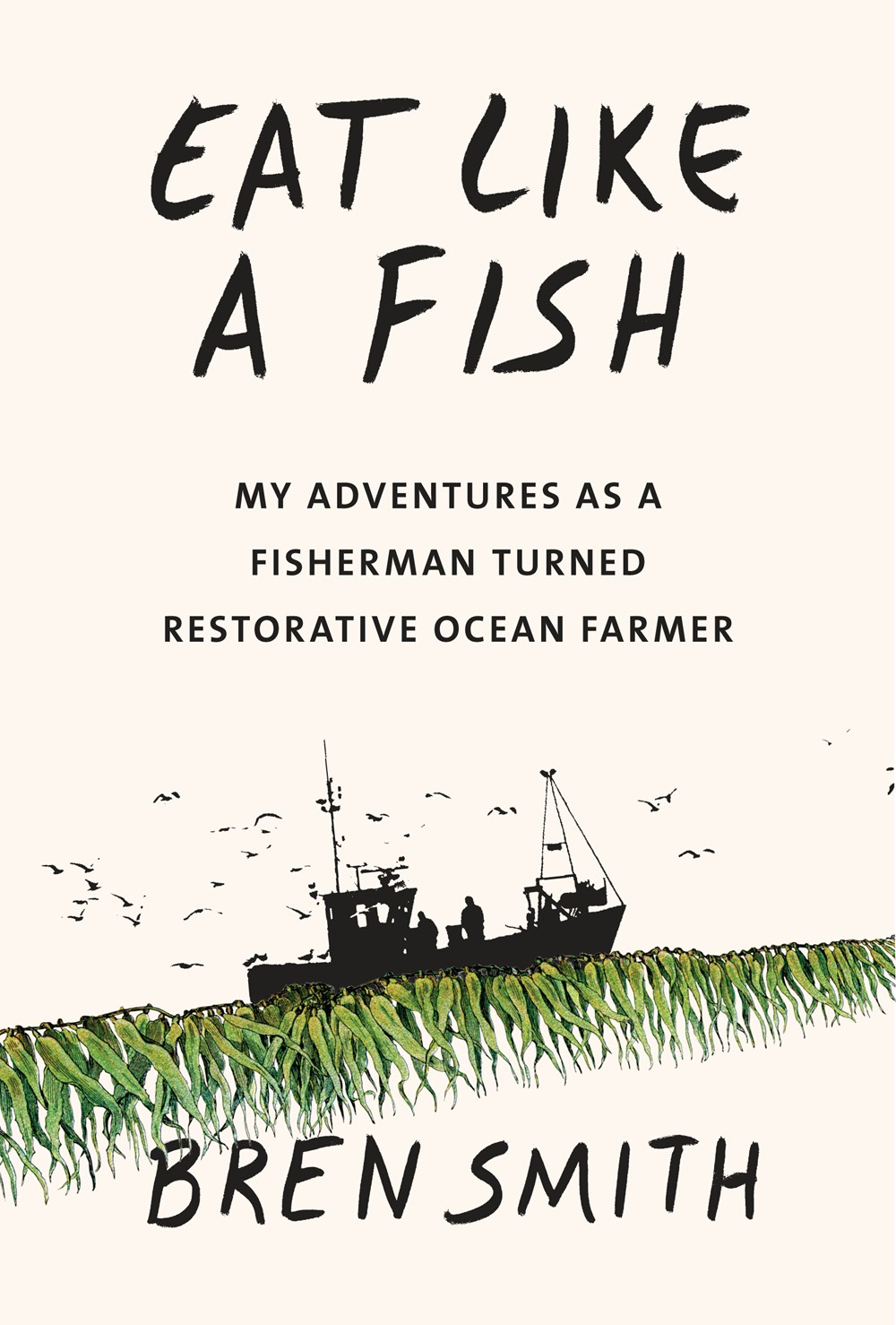Eat Like a Fish: My Adventures as a Fisherman Turned Restorative Ocean Farmer
May 16, 2019
The newest member of our marketing team, Gabbi Cisneros, reviews Bren Smith's journey to becoming an ocean farmer.

A quote I never thought I would read: “Seaweed had changed me.”
The ocean is an inherently weird and wondrous place: only 5% has been explored by humans, yet it covers over 70 percent of the planet. Fishermen’s tales are, by extension, equally as fanciful, taking place sometimes more inside the mind of the person than the real world. The issue with this representation is that the ocean may either be considered with the daunting suspicion of a horror film or with the nonchalance of a vacationer browsing “Wish You Were Here” postcards. However, the sea is very real, and so is climate change, which is seeping beneath every wave just as it is turning the winters harsher, summers hotter, and droughts more prevalent, among other things.
Bren Smith sees this reality. “Our seas can save us,” he asserts.
In Eat Like a Fish, Smith sculpts his and humanity’s past, present, and future with poetic and uplifting prose to tell messy, challenging, and bitter histories.
[A]quaculture has ended up with one of the worst brand names in the grocery aisle.
Though many people are aware of issues with seafood—for one, the nets that unintentionally scoop up dolphins and sea turtles with the fish; for two, the farmed salmon that are fed chemicals and fishmeal—we are unaware of how to change these practices. There is so much confusion over labels that most people give up on differentiating between them at all. If people like salmon, they will eat salmon. Smith challenges this mindset, stating that people like foods because they are familiar with them, and that we must change.
[O]ur tastes must bend to the ocean’s will. Regardless of existing market demand, what makes the most sense to grow in the ocean?”
Early on, he introduces his upbringing in Newfoundland—affectionately called The Rock—which instantly reeled me in. He jumps from his past to his present to his past again throughout the book, making connections between the values he was raised with and the work he does today. He doesn’t hide the darkest parts of his past but doesn’t dwell on them in a way that begs for sympathy either. Smith’s personal story of ups and downs reminds the reader that achieving great things requires trial and error. With regards to our changing environment, that effort must be much larger and more urgent:
In other words, in the face of climate change—small is no longer beautiful. We need to think big, act quickly, and scale up solutions. The time for little rooftop Brooklyn bee farms is over. We need to go big or go home.
Smith thinks big, and he teaches a lot in this book: about the history of fishing, the crimes of factory farming, the ease of setting up one’s own underwater garden, the necessity for innovation and persistence, and the history of seafood varieties and recipes yet to be explored.
To this day, I still can’t quite fathom the fact that there are over ten thousand edible plants in the sea, and only a handful are being farmed.
Smith’s journey of self-discovery on high seas, in crumbling dinghies, between brain seizures, and while slurping up seaweed soups seems too wild to be true. He’s a one-of-a-kind man, and though we can’t all hope to have the same adventures, Smith assures us of what we can do: support ocean farming. We understand how much he has had to learn himself, so that makes every step he teaches us seem doable, if not easy. Whether that is eating seaweed in lieu of spinach or going as far as growing scallops in a small sea plot, he guides us into a new world, a better world that can very possibly be our world if we decide so and persist. In short: seaweed can change us—and save us.


